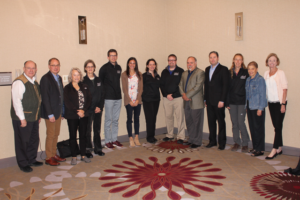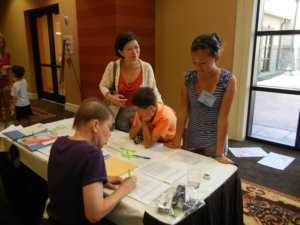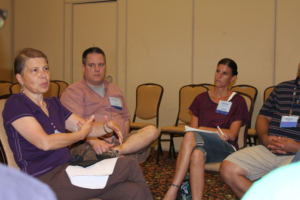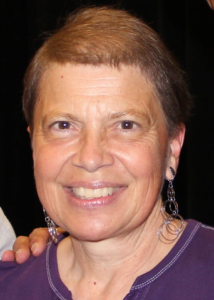by Kathleen J. Motil, M.D., Ph.D.

I am a member of the Scientific Advisory Committee (SAC) of the National Foundation for the Ectodermal Dysplasias (NFED). I have volunteered with this organization for nearly the last 20 years. Actually, I was “arm twisted” into volunteering by another SAC member, Dr. Richard Lewis, who thought I could contribute some ideas in the area of nutrition to the organization.
I had finished a bout of chemotherapy for lymphoma, a type of blood cancer. I was not certain that I could meet the challenge. However, at the time, I also volunteered with another family organization whose children have a different rare genetic disorder. I had been completely involved with changing the lives of these children through clinical care, education, and research and decided that I could do the same for children with ectodermal dysplasia.

Why I Volunteer
For me, volunteering is who I am. It is as natural as the sunrise and sunset. Volunteering is a way of giving back to the community and leaving the world in a better place for each child whose life I have touched.
The NFED has fostered curiosity in its committee members, and we have not been short on ideas. The best ideas have come from not only the research protocols that we review but also from internal ideas that allow us to learn more and better understand the disorders and issues that children with the ectodermal dysplasias may have. Families who likewise volunteer for the research projects that we espouse also promote the cause for their children. In effect, parents become their child’s best advocate.
With information from the NFED’s research efforts, we have been able to educate families, health care professionals, and community support agencies about the needs of children with the ectodermal dysplasias. In the final analysis, research findings and parental education have “added value” in improving the quality of the clinical care provided to children with the ectodermal dysplasias.
The most rewarding aspect of these activities is to visit with families from year to year at the annual Family Conferences, to help families take charge of their children’s lives when there seems to be so much to do, and to watch the children blossom into adults who then carry on the cycle of caring.

Dr. Kay Motil is a guest blogger for the NFED. She retired recently from USDA/ARS Children’s Nutrition Research Center where she was a researcher and and from Baylor College of Medicine in Houston, Texas where she was a professor of pediatrics. She joined the NFED’s SAC in 1998.
Are you interested in volunteering for the NFED? Learn more and sign up.
